News
Nursing care training equips SL youth with essential skills to pursue job opportunities here and in Japan
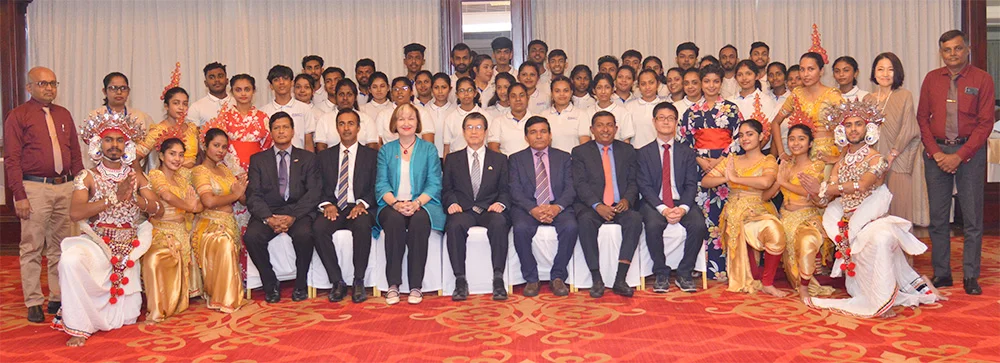
A major milestone was achieved with the successful completion of the Specified Skilled Worker (SSW) – Nursing Care training programme by 200 youth from across Sri Lanka, equipping them with essential skills to pursue job opportunities both locally and in Japan, International Labour Organization (ILO) said.
The latest cohort of 55 students received their certificates at a ceremony held in Kandy, attended by senior officials including Isomata Akio, the Ambassador of Japan, Joni Simpson, Director of the ILO Country Office for Sri Lanka and the Maldives, and officials from the National Youth Services Council (NYSC).
The SSW programme, conducted by the National Youth Services Council in collaboration with the ILO and Together with Youth, empowers Sri Lankan youth with training tailored for Japan’s growing demand for nursing care professionals. The programme is part of a broader effort to connect Sri Lankans with employment opportunities in Japan’s care sector, one of the country’s most in-demand industries. While Sri Lanka has been allocated a significant quota for nursing care professionals under the SSW scheme, only a small portion of this quota has been filled, leaving ample potential for expansion in the future.
During the ceremony, Ambassador Isomata Akio highlighted the strong historical ties between Japan and Sri Lanka and underscored the significant role the SSW programme plays in facilitating bilateral cooperation. “The Specified Skilled Worker programme provides an exceptional opportunity for youth to contribute to both Sri Lanka and Japan, while advancing their own aspirations,” he said. “I encourage young people to continuously improve themselves, refine their skills, including their Japanese language proficiency, and strive for ongoing personal and professional growth.”
The ILO’s UPLIFT project, which aims to increase employability and access to labor markets through skills enhancement and work-based learning, plays a critical role in the success of the SSW programme. By upskilling youth, especially those at risk of irregular migration, the UPLIFT project provides a pathway to dignified, safe migration and decent employment opportunities. This approach directly addresses the global demand for care professionals while promoting gender equality in the workforce.
Joni Simpson, Director of the ILO Country Office for Sri Lanka and the Maldives, emphasized the importance of the programme, especially in light of the challenges youth have faced due to the COVID-19 pandemic and Sri Lanka’s ongoing economic crisis. “The Nursing Care Specified Skilled Worker Programme establishes a critical pathway to securing decent work in the global care workforce. This training programme is timely and critical, not only in terms of much-needed jobs, skills, and safe migration for Sri Lankan youth, but also for addressing the global demand for paid care services and contributing to gender equality at work,” she said.
The UPLIFT project, which is jointly implemented by the ILO and the International Organization for Migration (IOM) and financed by the Government of Japan, plays a pivotal role in this initiative. It aims to ensure that Sri Lankans have access to decent work opportunities and safe migration pathways, aligning with national and global priorities for sustainable development and decent work.
The ILO, as the only tripartite United Nations agency, continues to promote labour standards, develop policies, and implement programmes to ensure decent work for all people worldwide.
The successful training and subsequent employment of Sri Lankan youth in Japan’s nursing care sector reflect the importance of international cooperation and skills development in addressing global labour shortages while providing safe and dignified employment opportunities for migrant workers.
News
President announces PAYE tax reductions
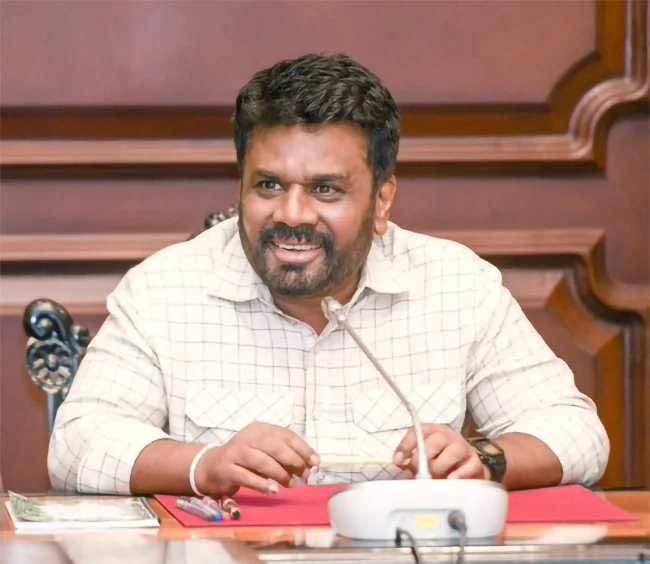
Imputed rental tax to be implemented in 2025
Withholding tax increased from 5% to 10%
President Anura Kumara Dissanayake yesterday told Parliament that the PAYE tax threshold be increased from Rs. 100,000 to Rs. 150,000.
“We held discussions with the IMF and were able to raise the tax threshold from Rs. 100,000 to Rs. 150,000 per month,” President Dissanayake said.
President Dissanayake said that the Withholding Tax would be increased from 5% to 10% and tax on services exports would be reduced to 15% from 30%.
The President said: “During the initiation of the third review, we decided to reduce the burden of the Pay-As-You-Earn (PAYE) tax imposed on professionals in our country. There was significant dissatisfaction regarding this tax among professionals such as university academics, doctors, and bank officials.
Following discussions, we were able to increase the tax-free threshold from LKR 100,000 to LKR 150,000. Additionally, the first band of the Personal Income Tax (PIT), taxed at 6%, was extended from LKR 600,000 to LKR 01 million. Accordingly:
• An individual earning a monthly income of LKR 150,000 pays zero tax.
• An individual earning LKR 200,000 is exempted from 71% of the tax they would have otherwise paid.
• An individual earning LKR 250,000 is exempted from 61% of the tax.
• An individual earning LKR 300,000 is exempted from 47% of the tax.
• An individual earning LKR 350,000 is exempted from 25.5% of the tax.
What does this mean? We have successfully provided greater relief to lower-income earners while offering reduced benefits to higher-income earners, achieving a fair and balanced outcome through this review.”
“Immediately after the conclusion of the general election, on 16 Nov., we began the third review discussions with the IMF. During the second review, several preconditions and agreements were reached by the previous government. One such agreement was the imposition of an imputed rental income tax, which is scheduled to be implemented in 2025, as agreed upon during the second review,” the President said, adding that vehicle imports would resume on 01 Feb. 2025, and that would be carried out under a structured programme.
The President said the government would resume vehicle imports in three stages.
The import of buses used for passenger transport and vehicles used for special services had begun on 14 Dec., 2024, he said, stressing that Sri Lanka would not face a foreign exchange crisis due to this decision.
“Through lengthy discussions with the Central Bank, the government has estimated the amount of dollars that would be spent due to the importing of vehicles and the impact on the economy. In order to strengthen our economy, we must reopen vehicle imports,” he added.
The President said the suspension of the parate execution law had been extended until March 2025.
The law was previously set to remain suspended until 15 December, 2025, following a conditional approval of the Committee on Public Finance (COPF) under the previous Government.
President Dissanayake said the decision to extend the suspension of parate executions by three and a half months had been made following concerns raised by Sri Lanka’s banks, regulators, and small and medium enterprises (SMEs) about challenges in loan repayment and the impact of the law on struggling businesses.
However, he cautioned that such action could have an adverse impact on banks and financial institutions, stressing the need to balance support for SMEs while protecting the banking system.
President Dissanayake said that the total outstanding debt currently stands at Rs. 1,385 billion, involving 752,886 debtors. Of these, 99% are defaulters with loans of less than Rs. 25 million, he said.
“Defaulters who have loans below Rs. 25 million will be given an opportunity to restructure their debt until 12 December, 2025. They must present a debt restructuring plan to their banks by March,” the President said.
News
Sajith tables his educational qualifications in Parliament
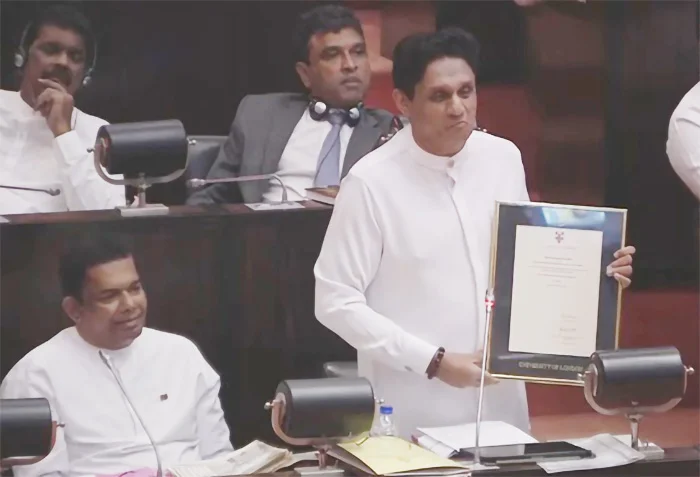
SJB and Opposition Leader Sajith Premadasa yesterday tabled his academic qualifications in Parliament, following a challenge issued by Chief Government Whip and Minister Dr. Nalinda Jayatissa.
Premadasa, in a detailed response, presented all his educational certificates.
Premadasa said: “I did not sit the GCE Ordinary Level Examination in Sri Lanka, as I left the country, after Grade 9. Instead, I pursued my education in the UK, where I successfully completed my O-Levels and A-Levels,” Premadasa said, adding that he had obtained his first degree from the University of London but he had to return to Sri Lanka in 1993 following his father’s assassination. “I had to cut short my Master’s degree at that point, but later, I pursued further studies at the University of Maryland, College Park, in the United States, where I earned a Master’s in Public Management,” Premadasa stated. He also revealed that he had completed a degree at the Open University of Sri Lanka, where Prime Minister Harini Amarasuriya was one of his lecturers.
News
South Asia’s geoeconomic vulnerability, trade challenges highlighted in latest WB report
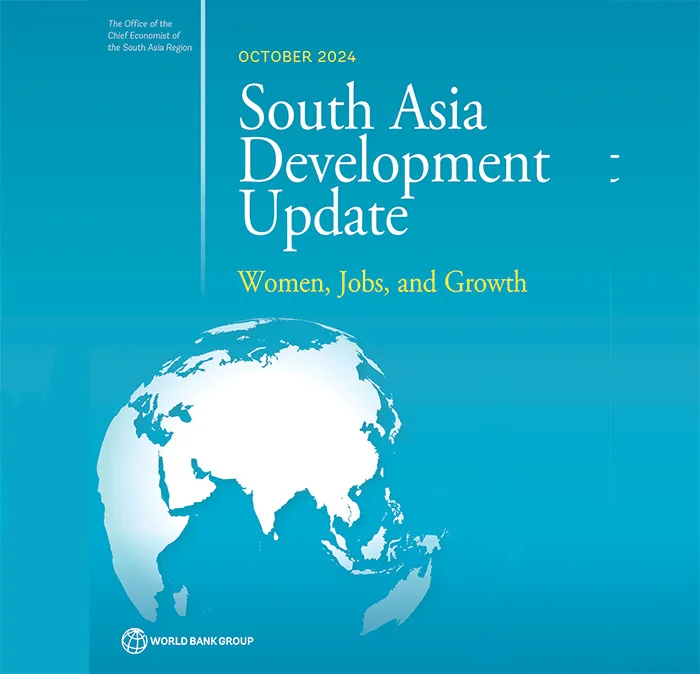
The World Bank’s latest South Asia Development Update raises important questions about the region’s vulnerability to geopolitical risks and its ability to adapt to the shifting global economic landscape. As the global economy fragments along geopolitical lines, South Asian countries face complex challenges as they attempt to navigate these divisions while also positioning themselves to benefit from the reshaping of global value chains.
The report notes that many emerging market and developing economies (EMDEs), including those in South Asia, are grappling with the economic fallout of geopolitical fragmentation. As countries increasingly realign along political and economic lines, the ability of South Asia to remain resilient to external shocks, including trade disruptions and geopolitical tensions, has become a key concern.
According to the World Bank, South Asian countries’ geopolitical stances, as reflected by their voting patterns in the United Nations, generally align more closely with China than with the United States or Europe—the region’s primary export destinations and largest foreign direct investment (FDI) sources. This alignment places South Asia in a unique position as global power dynamics shift, particularly in light of growing tensions between major geopolitical players.
However, the report also emphasizes that South Asia’s relative insulation from external geopolitical risks is partly due to the region’s lack of openness to global trade and investment. South Asian countries are among the most closed economies in the EMDE group, ranking in the bottom quartile for global trade and FDI openness. While this insularity provides some protection from external shocks, it also limits the region’s capacity to leverage geopolitical diversity and capitalize on the transformation of global supply chains.
While South Asia’s economic ties are becoming more geopolitically diversified, this shift has not been fully translated into economic benefits due to the region’s restrictive trade policies. Countries like India, Pakistan, Sri Lanka, and Bhutan have expanded their export markets and FDI sources, increasing their geopolitical diversity since 2016. Despite this, the World Bank points out that these countries’ economic openness remains constrained, preventing them from fully realizing the potential advantages of their diversified international relationships.
The South Asia Development Update suggests that South Asian countries could significantly boost their economic performance if they reduced trade barriers, eased FDI restrictions, and invested in infrastructure and logistics. These steps would not only enhance trade connections but also help mitigate vulnerabilities to external shocks, whether geopolitical or economic.
To fully capitalize on their diverse geopolitical ties, the World Bank advocates for a series of policy reforms. These include lowering import tariffs, easing restrictions on foreign investment, improving infrastructure, and deepening financial markets. The report further suggests that South Asia should actively engage in a wide range of trade agreements to maintain a diverse set of trading partners and creditors, which could act as a buffer against potential geopolitical risks.
The potential gains from these reforms are substantial. According to the World Bank’s cross-country analysis, if South Asian countries were to adopt the best practices seen in high-performing EMDEs—such as improving logistics performance and reducing tariffs—there is potential for the region’s export connectedness to match that of Malaysia and Indonesia, two countries that are often cited as models of trade openness and economic integration.
The World Bank’s report underscores that while South Asia faces significant geopolitical risks, the region’s current economic policies are limiting its ability to take advantage of the evolving global trade environment. By fostering greater openness to international trade and investment, South Asian countries could better position themselves to thrive amidst the diversifying global value chains and mitigate the risks associated with geopolitical fragmentation.
For policymakers in the region, the key takeaway is clear: embracing economic openness and strengthening trade and investment ties with a broader set of global partners could unlock considerable growth potential for South Asia.
-

 Opinion3 days ago
Opinion3 days agoDegree is not a title!
-
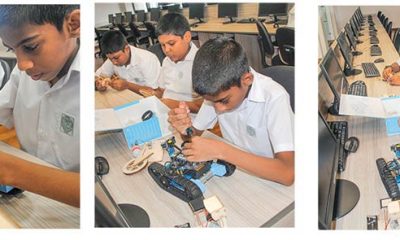
 Features6 days ago
Features6 days agoEmpowering the next generation: St. Benedict’s College brings STEM education to life
-
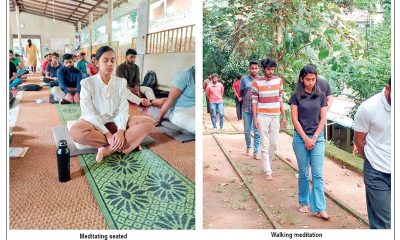
 Features4 days ago
Features4 days agoSpiritual Awakening of a Village
-
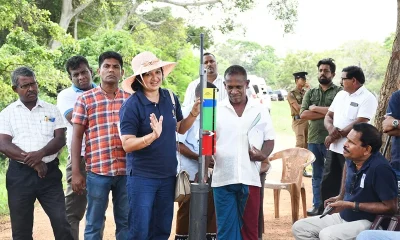
 News2 days ago
News2 days agoInnovative water management techniques revolutionising paddy cultivation in Lanka
-

 News5 days ago
News5 days agoOver 300,000 Sri Lankans leave for overseas jobs this year
-

 Latest News5 days ago
Latest News5 days agoIndia’s Gukesh beats China’s Ding to become youngest chess world champion
-
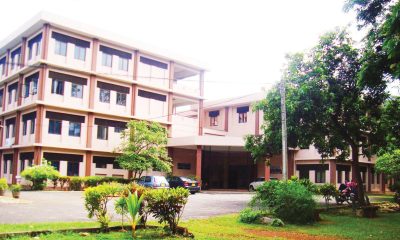
 Features4 days ago
Features4 days agoRevisiting the role of education in shaping shared futures
-
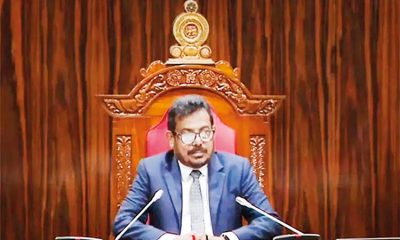
 Features4 days ago
Features4 days agoThe Silence of the Speaker and other matters











